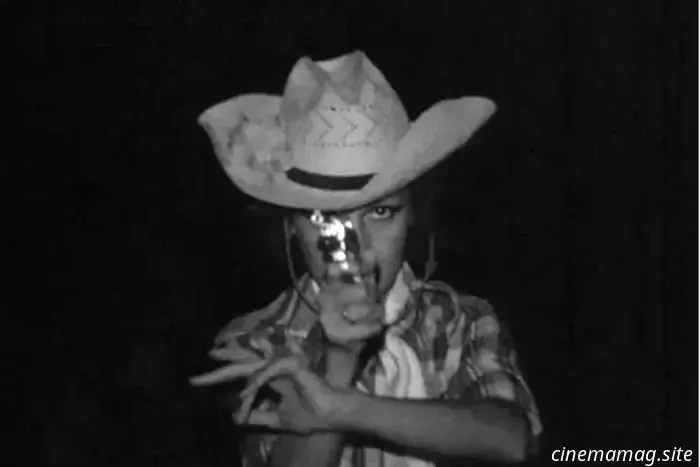
A.I. and Archiving Converge at the 2025 Thessaloniki Documentary Festival
The journey from Thessaloniki's airport into the city starts like any other: with car dealerships and furniture outlets that transition into a lively urban atmosphere. Home to more than a million residents, an active port, and Greece's largest university, Thessaloniki stands as the nation's second-largest city, its population becoming denser as you navigate past Byzantine walls and the Roman Rotunda towards the shimmering Aegean Sea. Having attended the city's biannual film festivals (spring showcases documentaries, while fiction takes center stage in the fall), I have made this trip numerous times over recent years, most recently on a shuttle with Dionysia Kopana, a filmmaker from Athens whose latest project, NovaMax Skyland, was set to premiere the next evening. During the ride, Kopana discussed the fragile landscape of independent cinema in Greece, the earthquake that recently threatened Santorini, and the protests that had erupted across the country that week to commemorate the anniversary of the Tempi Train crash along with the government's failure to hold anyone accountable.
The Thessaloniki Documentary Festival is not an escape from the world's troubles. Nestled in the northwest part of the Aegean Sea, Thessaloniki rises up from a promenade that spans from a 12th-century tower on its eastern edge to the cruise ships and cargo containers of the city’s port. The festival’s main center is located in a repurposed block nearby, where former shipping warehouses now accommodate a gallery, a film museum, and several modern cinemas. This year's artist in residence, Lauren Lee McCarthy, transformed the space with her installation LAUREN: Anybody Home?, creating a replica smart home where McCarthy served as a human Alexa, encouraging visitors to engage with her through cameras and microphones. This piece was part of a new segment emphasizing the increasing impact of A.I. technologies in art, cinema, and beyond.
---
**About a Hero**
The opening film of this segment, Piotr Winiewicz’s About a Hero, examined the strengths and constraints of artificial intelligence in filmmaking. Drawing inspiration from a Werner Herzog quote (“a computer will not create a film as good as mine in 4,500 years”), Winiewicz fed an archive of the director's screenplays and interviews into a learning model to generate a script. About a Hero merges Winiewicz’s creation of this fictional film with interviews featuring artists, scientists, and actors, including Stephen Fry. While Winiewicz initially makes a distinction between the film's fictional and documentary facets, the two begin to intertwine in captivating ways, prompting deeper exploration. The authentic appearance of Vicky Krieps in some scenes adds to the intrigue. However, for now, Herzog can rest assured.
Despite concerns about the future, some of the most poignant films presented were retrospectives. The first film I viewed was Luuk Bouwman’s The Propagandist, which serves as an aural history of Jan Teunissen, a mediocre filmmaker who became a dominant force in the Dutch cinema industry during World War II. Featuring audio recordings of an unapologetic Teunissen from the post-war years (he lived to the age of 77), presented by the historian who interviewed him, Bouwman’s compelling study portrays him as the Dutch counterpart to Leni Riefenstahl. It’s unnecessary to see Andres Veitel’s already acclaimed Riefenstahl (as I did on my last day at TIDF) to realize that the comparison doesn’t quite fit Teunissen—though I suspect he would have relished it. Nonetheless, I recommend viewing it. What Bouwman and Veitel's subjects shared was a talent for opportunism, an ever-relevant theme for filmmakers and currently a booming subject of interest: sufficient to wonder which of today’s flatterers will be subjected to this kind of harsh historical scrutiny in future decades.
Both Thessa Docs and its autumn counterpart bestow an honorary Golden Alexander for contributions to cinema. This year's awardee was the seasoned French filmmaker Nicolas Philibert, who held a masterclass titled “Improvise, an ethical necessity,” though I can't recall many details from it. However, I picked up information regarding the state of the documentary scene in France, where Philibert noted that an average of three documentaries are released weekly. A notable example he could have mentioned is Claire Simon’s Elementary. Following up on her excellent Our Body, Simon’s latest film shifts from a Parisian hospital to a school in Saint-Étienne, focusing on a classroom of children during the later, sunnier weeks of the year. Like recent films from Ruth Beckermann (Favoriten) and Maria Speth (Mr. Bachmann and His Class), Elementary possesses undeniable charm but is slightly hindered by recent comparisons, lacking the central teacher figure and socio-political depth that made Beckermann and Speth’s works resonate.
---
**GEN_**
Gianluca Matarrese’s vibrant GEN_ would serve as an excellent complement to Our Body.


Other articles
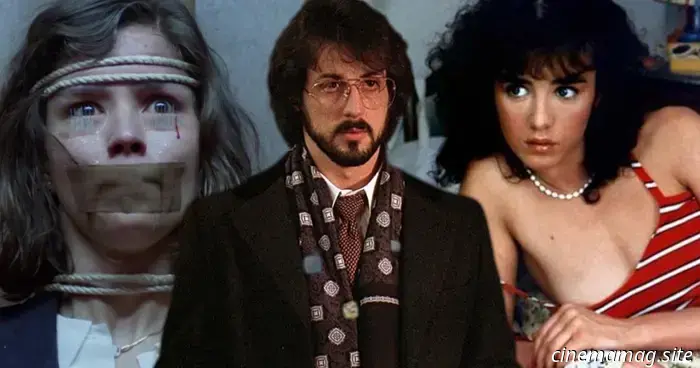 10 Amazing Overlooked Treasures from the 1980s
We explore ten fantastic overlooked treasures from the 1980s… How many of these have you watched? The 1980s was a diverse mix of films. Blockbusters and franchises started to gain significant popularity. The rise of home video provided an opportunity for movies to thrive outside of theaters as well. Film enthusiasts have consistently gathered in […]
10 Amazing Overlooked Treasures from the 1980s
We explore ten fantastic overlooked treasures from the 1980s… How many of these have you watched? The 1980s was a diverse mix of films. Blockbusters and franchises started to gain significant popularity. The rise of home video provided an opportunity for movies to thrive outside of theaters as well. Film enthusiasts have consistently gathered in […]
 The Emperor of Light makes his debut in The Seven Deadly Sins: IDLE Adventure with the latest update.
Netmarble has launched a new update for the idle RPG The Seven Deadly Sins: IDLE Adventure, which introduces a new character – the Emperor of Light Escanor, along with a special event and improved game content. In this most recent update for the game inspired by the globally acclaimed manga and anime 'The Seven Deadly Sins', the INT-based DPS Emperor […]
The Emperor of Light makes his debut in The Seven Deadly Sins: IDLE Adventure with the latest update.
Netmarble has launched a new update for the idle RPG The Seven Deadly Sins: IDLE Adventure, which introduces a new character – the Emperor of Light Escanor, along with a special event and improved game content. In this most recent update for the game inspired by the globally acclaimed manga and anime 'The Seven Deadly Sins', the INT-based DPS Emperor […]
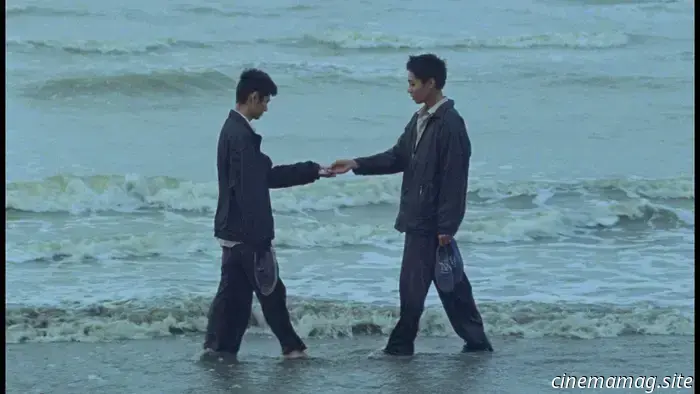 Việt and Nam Review: A Heartfelt, Evocative Slow Cinema Love Story
Note: This review was initially published as part of our coverage for the 2024 New York Film Festival. Việt and Nam will be released in theaters on March 28 by Strand Releasing. “Keep the light on. It helps me dream more easily.” The film begins with an impressive shot, marking the second feature from writer-director Trương Minh Quý.
Việt and Nam Review: A Heartfelt, Evocative Slow Cinema Love Story
Note: This review was initially published as part of our coverage for the 2024 New York Film Festival. Việt and Nam will be released in theaters on March 28 by Strand Releasing. “Keep the light on. It helps me dream more easily.” The film begins with an impressive shot, marking the second feature from writer-director Trương Minh Quý.
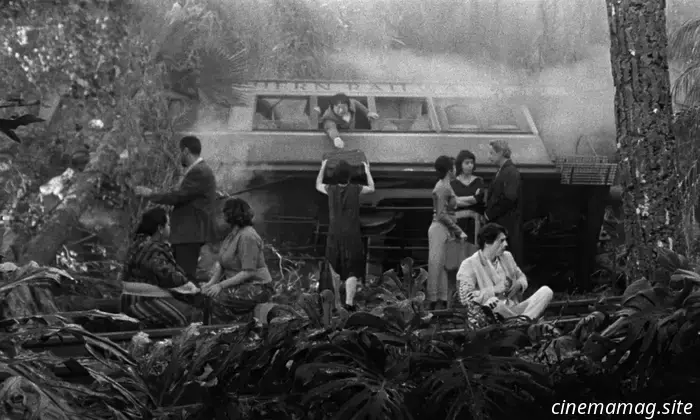 Grand Tour Review: A Captivating Comeback for Miguel Gomes
Note: This review was initially published as part of our coverage of Cannes 2024. Grand Tour will be released in theaters on March 28 by MUBI. If Chris Marker and Preston Sturges collaborated on a film, it might resemble Grand Tour, an expansive narrative that travels from Rangoon to Manila, passing through Bangkok, Saigon, and
Grand Tour Review: A Captivating Comeback for Miguel Gomes
Note: This review was initially published as part of our coverage of Cannes 2024. Grand Tour will be released in theaters on March 28 by MUBI. If Chris Marker and Preston Sturges collaborated on a film, it might resemble Grand Tour, an expansive narrative that travels from Rangoon to Manila, passing through Bangkok, Saigon, and
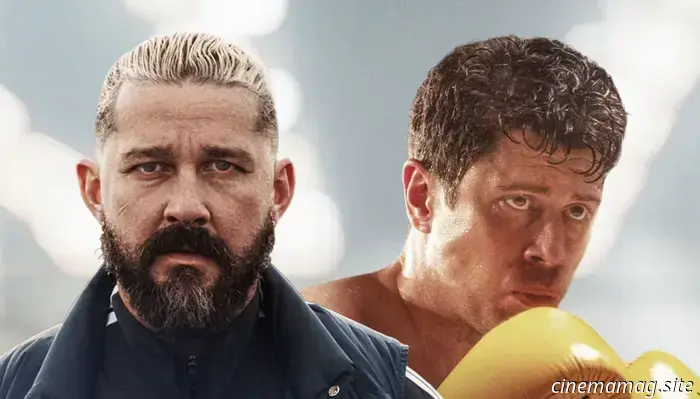 Trailer for Salvable featuring Toby Kebbell, Shia LaBeouf, and James Cosmo.
Lionsgate has unveiled a poster and trailer for the upcoming crime drama Salvable, directed by Bjorn Franklin and Johnny Marchetta. Featuring Toby Kebbell, Shia LaBeouf, and James Cosmo, the film centers on the life of an aging boxer who faces challenges both in the ring and in his personal life as he attempts to regain control when he relapses into...
Trailer for Salvable featuring Toby Kebbell, Shia LaBeouf, and James Cosmo.
Lionsgate has unveiled a poster and trailer for the upcoming crime drama Salvable, directed by Bjorn Franklin and Johnny Marchetta. Featuring Toby Kebbell, Shia LaBeouf, and James Cosmo, the film centers on the life of an aging boxer who faces challenges both in the ring and in his personal life as he attempts to regain control when he relapses into...
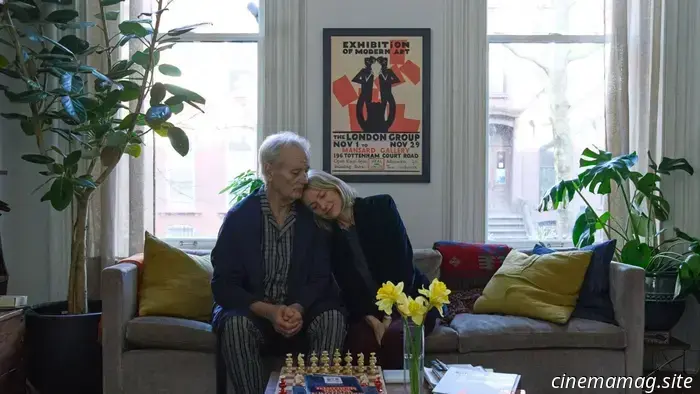 The Friend Review: Naomi Watts Effectively Captures Grief with a commendable Performance
Note: This review was initially published during our coverage of the 2024 New York Film Festival. The Friend is set to be released in theaters on March 28 by Bleecker Street. The latest work from independent filmmakers Scott McGehee and David Siegel, who have collaborated for 30 years, is a dog movie. More precisely, it’s a film focused on a
The Friend Review: Naomi Watts Effectively Captures Grief with a commendable Performance
Note: This review was initially published during our coverage of the 2024 New York Film Festival. The Friend is set to be released in theaters on March 28 by Bleecker Street. The latest work from independent filmmakers Scott McGehee and David Siegel, who have collaborated for 30 years, is a dog movie. More precisely, it’s a film focused on a
A.I. and Archiving Converge at the 2025 Thessaloniki Documentary Festival
The journey from Thessaloniki's airport to the city starts in a typical fashion, featuring car dealerships and furniture shops that transition into lively streets filled with activity. With a population exceeding one million, a busy port, and the largest university in the country, Thessaloniki is Greece's second-largest city, and the density of its inhabitants increases as you continue.
